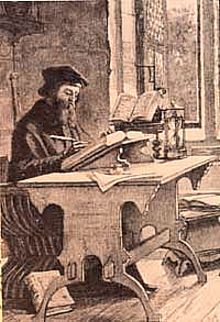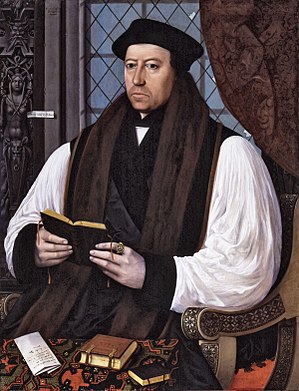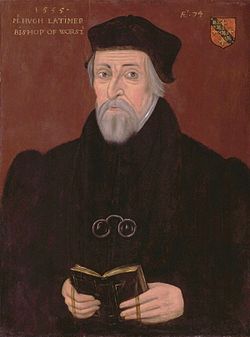 |
| Wickliffe at work |
John Wickliffe was born in 1324 in Yorkshire, England. He was saved after reading the Bible when he was frightened at the thought of death when the Black Death, which killed half the human race, arrived in London. He began to proclaim his faith to others, and he was an eloquent preacher and teacher. He became popular when he was preaching against the pope who claimed to rule England. In 1379 he became sick and four priests came to attempt to make him recant. He told them, “I shall not die, but live; and again declare the evil deeds of the friars.”
1 His ministry began with attacking the pope and turned to preaching the gospel to everyone and then he permanently gave the people the word of God with his translation of the Bible. He translated it from Latin because he did not know Hebrew or Greek. It had a great effect even though it had to be copied by hand because the printing press had not yet been invented.
After translating the Bible he continued to teach the people. The church was angered because he disagreed with the doctrine transubstantiation - that Christ was killed whenever they did the mass. He was not punished because there were two people who claimed to be pope and they were too busy fighting each other. In 1384 he was paralyzed as he was administering the Lord’s Supper and he died two days later on December 31st, 1384. He was the first Reformer and a great leader of the English Reformation. D’Aubigne said, “If Luther and Calvin are the fathers of the Reformation, Wickliffe is its grandfather.”
2
 |
| Wickliffe preaching |
1. J. H. Merle D’Aubigne, History of the Reformation of the Sixteenth Century, (Harrisonburg, Virginia: Sprinkle Publications, 2003) vol 5, p 93
2. Ibid, p. 104










